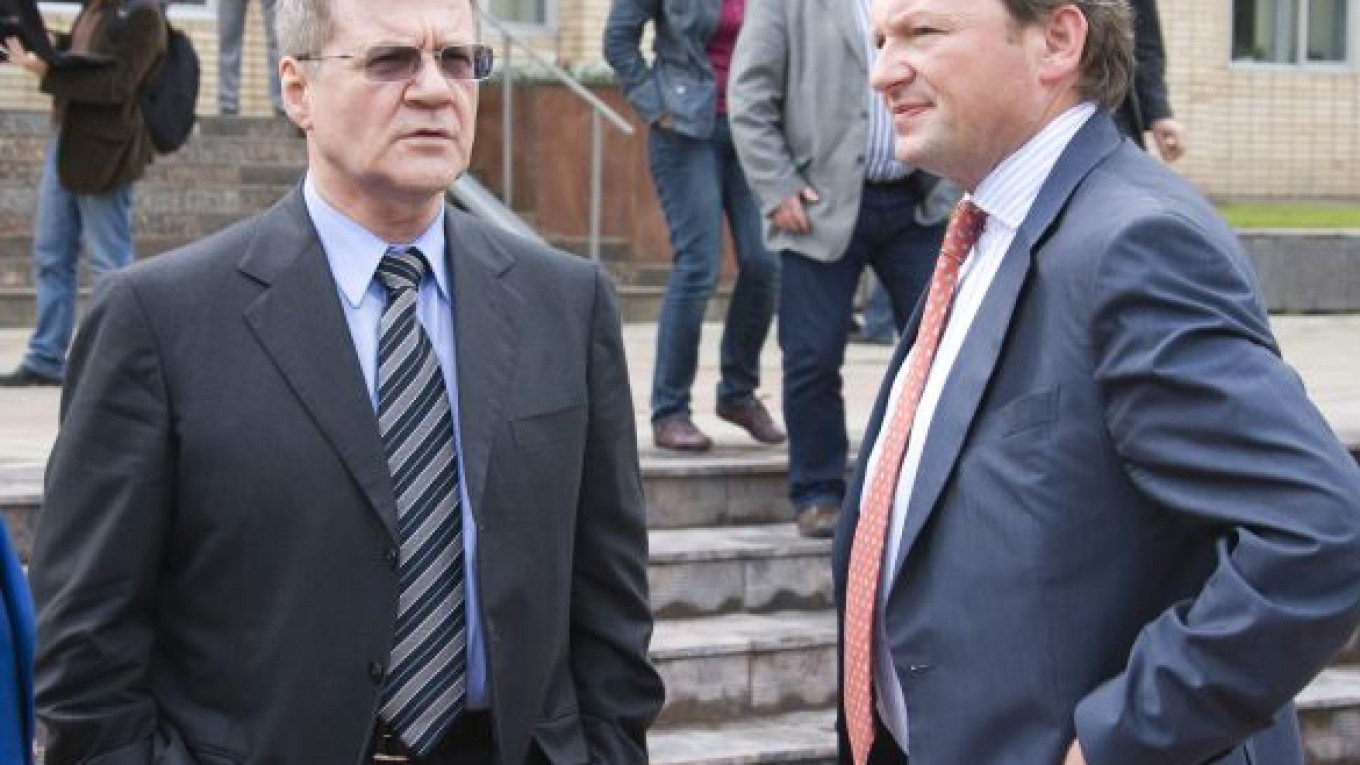The majority of unplanned checks on small businesses are not being approved beforehand by the Prosecutor General's Office, which is being circumvented in half of all inspections, the Economic Development Ministry has found.
The government, however, wants to force officials to be more attentive to the rules, and state bodies whose checks are too often deemed unjustified will face staff cutbacks.
Since May 1, 2009, state oversight bodies have been required to approve the majority of their checks on small businesses with prosecutors. But the rule is often violated, according to a report on state and municipal oversight work, which was published by the Economic Development Ministry.
In the second half of 2009 and the first quarter of 2010, oversight bodies conducted 879,660 checks on small businesses, of which 389,876 were unscheduled, the ministry said. In the third and fourth quarters of last year, just 2.3 percent of unscheduled checks were approved with prosecutors, a figure that edged up to 3.8 percent in the first quarter of 2010.
The largest number of checks were conducted by the Emergency Situations Ministry, the Federal Consumer Protection Service and the Federal Labor and Employment Service, the report found.
As many as 50 percent of the unplanned checks could be illegal, said Andrei Sharov, director of the ministry's department on developing small and medium-sized business. In the first three months of this year alone, prosecutors received 10,638 requests to approve checks, but it only approved half of them. In 60 percent of cases the requests were declined because there was no reason for them to be conducted, the report said.
Prosecutors most often refused requests from the Federal Registration Service (78 percent refusal rate), the Federal Service for Environmental, Technological and Atomic Inspection (72 percent refused), the Federal Transportation Inspection Service and the Federal Health and Social Development Inspection Service (both with 57 percent of requests declined).
The Federal Labor and Employment Service conducted a lot of unscheduled checks last year because it received many complaints from workers about their rights being violated, said Yury Gertsy, the service's director. He said such checks did not require prosecutors' approval.
Representatives from the other bodies mentioned in the report declined to comment.
If a check is conducted without being sanctioned by prosecutors, its results should be overturned by a court, Sharov said.
But there are many loopholes in the law used by inspectors, said Dina Krylova, president of the Delovaya Perspektiva foundation.
Some unscheduled checks may be conducted without prosecutors' approval, such as public complaints or publications in the media about violations of consumers' rights, or if a check is conducted to determine whether previously uncovered violations have been eliminated.
Additionally, the law does not apply to tax officials, customs officers, the Central Bank, the Pension Fund and others.
Employees at oversight agencies can ask acquaintances to file complaints "in order to have a reason to go to a business, and there some violation will always be found," Krylova said.
In order to reduce the number of unannounced checks, there needs to be some way to make sure that the actual inspection corresponds to the complaint received, she said, adding that entire businesses are now often inspected.
Krylova also warned that if the number of checks on business increases, all of the federal authorities' efforts to reduce the administrative burden on business will be of no use.
No changes to the law are planned, said Sharov, adding that prosecutors should more frequently check up on the bodies conducting inspections. The punishment for an unapproved inspection is a fine of up to 10,000 rubles ($335) or termination.
But oversight bodies breaking the law can expect to face even more serious sanctions. The government is planning to lower the number of state officials, Sharov said, and a proposal is being considered that would cut staff from the bodies whose checks are most often being rejected by prosecutors.
The proposal has already won backing from the government's commission on administrative reform, Sharov said.
The decision is a good one, but it is unlikely to dramatically reduce the number of unjustified inspections, said Anton Danilov-Danilyan, head of Delovaya Rossia's expert council. Officials will just become more refined in their approach as they seek to get prosecutors' approval.
A Message from The Moscow Times:
Dear readers,
We are facing unprecedented challenges. Russia's Prosecutor General's Office has designated The Moscow Times as an "undesirable" organization, criminalizing our work and putting our staff at risk of prosecution. This follows our earlier unjust labeling as a "foreign agent."
These actions are direct attempts to silence independent journalism in Russia. The authorities claim our work "discredits the decisions of the Russian leadership." We see things differently: we strive to provide accurate, unbiased reporting on Russia.
We, the journalists of The Moscow Times, refuse to be silenced. But to continue our work, we need your help.
Your support, no matter how small, makes a world of difference. If you can, please support us monthly starting from just $2. It's quick to set up, and every contribution makes a significant impact.
By supporting The Moscow Times, you're defending open, independent journalism in the face of repression. Thank you for standing with us.
Remind me later.


